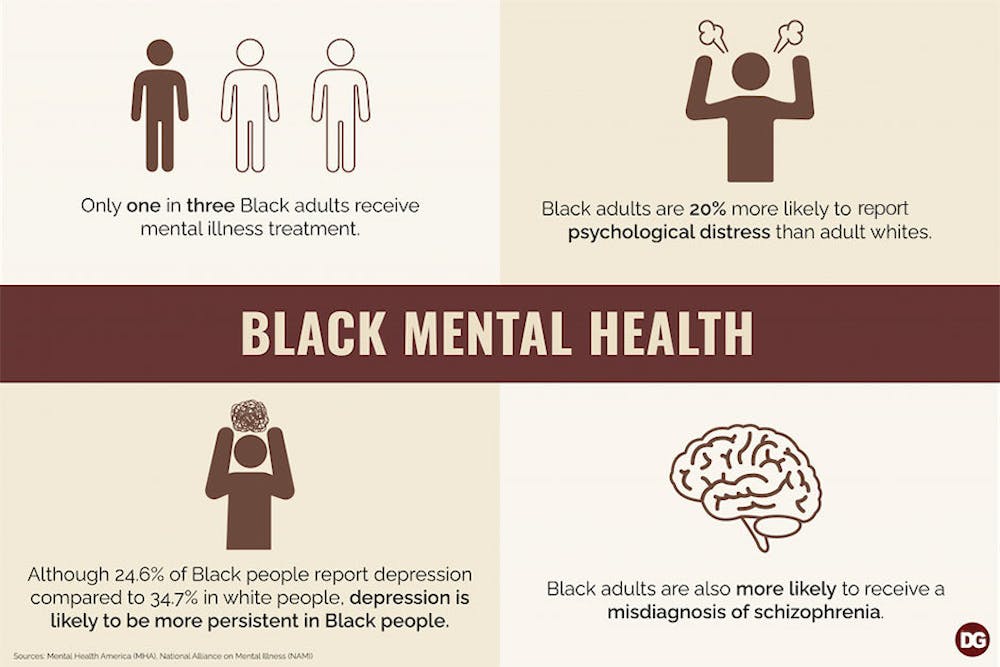Though talking openly about mental struggles has become more mainstream, the country needs to do more to address stigmas and unequal access to mental healthcare for Black Americans.
BIPOC often experience a "disproportionately high burden of disability from mental disorders," according to the American Psychiatric Association.
Black patients have to travel further and wait for care longer than white patients do, the Washington Post found.
This lack of effort from healthcare providers is common with multiple sources telling similar stories of neglect or inappropriate diagnoses.
Miles Phifer, a fourth-year electrical engineering student, said that although he has not encountered discrimination in healthcare directly, he has heard cases about Black patients being discriminated against.
"It's often that I'll hear stories about, a case where a Black woman was complaining about a pain that she had ... and it was ignored or it was brought up that fact that 'oh, you're genetically different,'" Phifer said.
Studies show that common symptoms in white and Black patients can be misdiagnosed as schizophrenia based on race, according to another article published in the APA.
What may be classified as a symptom of a mood disorder in a white patient is something much more serious for a Black patient. Some, like Walker and Phifer, described a degree of neglect from healthcare professionals.
"I have an issue and I go see a specialist about it. You can have the same issue and they take care of it a lot faster," Justin Walker, a fourth-year supply chain and retail management student, said.
On top of everyday mental stressors, African Americans cope with racism and micro aggressions on a daily basis whether in conversation or the healthcare provided to them.
At USC, many members of the Black community turn to each other for support.
"My brothers (at Alpha Phi Alpha) are a hell of a support system. Like it doesn't matter what time, what day, no matter what the circumstances, we are all there for each other," Xavier Peguese, a fourth-year sports and entertainment management student, said.
Having a support system filled with people that experience similar hardships aids in the battle for equal healthcare. But healthy communities that are open to talking about mental health are not enough to overcome unequal access to healthcare and unequal treatment.
Mental health resources that treat each patient with the same respect and urgency need to be made more accessible to all communities. It's hard enough for people to reach out for help, and when help is sought out for, it may not be taken as seriously based on a patient's race.
"Progress is being made, but very, very slow," Walker said. "(We) pass down not only trauma, but trauma responses."
Trauma responses can be carried for generations, and Peguese, Phifer and Walker described having to cope with the struggles against systemic issues that take much more work than mental health awareness month is capable of addressing.
There's community to be made in an unjust environment. Although it may not be enough to address longer than average waiting times or the biases from healthcare professionals, it is easier to have an empathetic shoulder to cry on.
"(Black students at USC) have that bond of being Black students on a predominately white institution," Phifer said.
Via social media trends and community outreach, mental health awareness in all communities has made it easier for friends and family to express their struggles to one another, but addressing the root causes of trauma passed down goes deeper than many assume.
"I think we have to look internally because we can't expect people to fix our issues for us," Walker said. "We've seen how not caring and not paying attention to mental health affects people directly. So, I think that we're beginning to bridge that gap."

